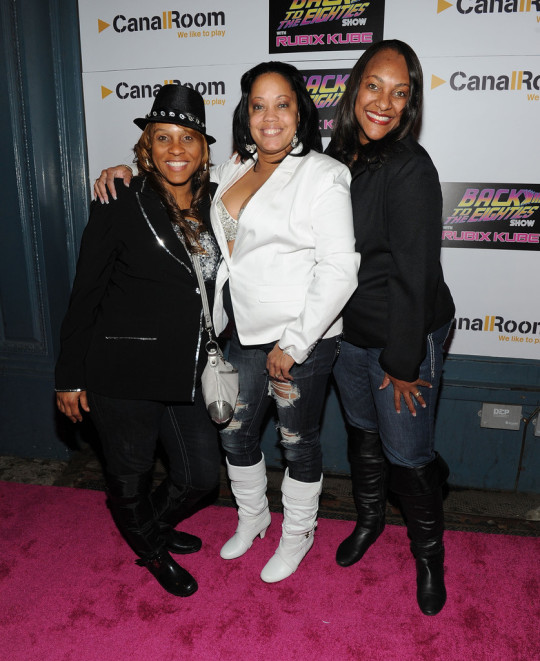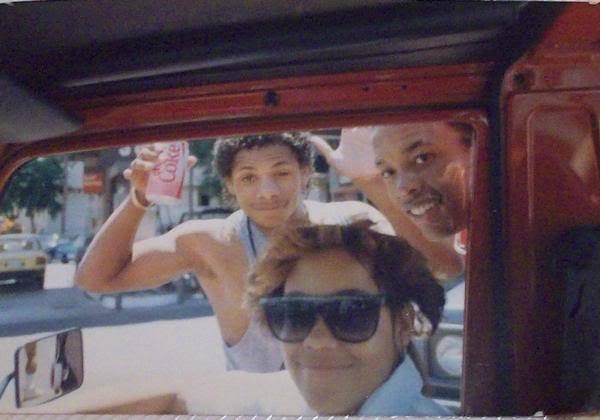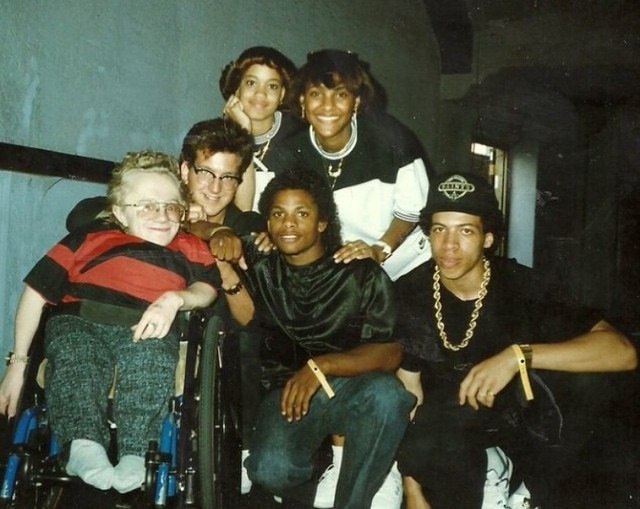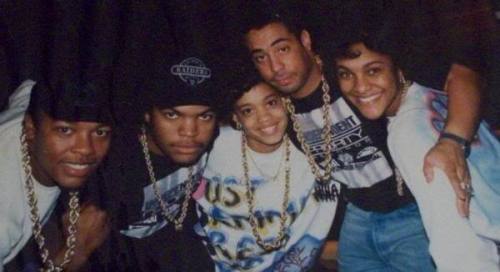by
Brandon Perry, August 14, 2015
With today’s nationwide release of the NWA biopic Straight Outta Compton, Hopes&Fears wondered why Hollywood execs left influential girl group J.J. Fad out of the picture. J.J. Fad’s seminal NWA-produced album Supersonic paved the way for their male counterparts by offering a poppy alternative to the gangster rap NWA would become known for, and - by hitting #33 on the Billboard Charts - legitimized Ruthless Records with a commercially successful album, enabling Straight Outta Compton to become the hit we know it as today.
We spoke with J.J. Fad’s Juana Burns about being left out of history, her group’s legacy, and who she would want to play her if they ever made a J.J. Fad biopic.
Hopes&Fears: People have been asking me if I’m excited to see Straight Outta Compton and the first thing I said is that I really hope they touch on J. J. Fad’s role in the album. How did you see your role in the whole thing?
Juana Burns: I just wish that they would have put in a line like, “Hey let me finish up with J. J. Fad in the studio. Eazy, I’ll be right with you.” And then, they could have put a little “
Supersonic” in the background, so that the history would have been told the right way. If I wasn’t sitting here telling you this, you would never know. The average person would never know how integral we were, and how pivotal we were to the whole NWA story.
H&F: I feel like I know it by listening to those records.
JB: Exactly.
H&F: I don’t know if people in middle America watching the movie for the first time are going to know. Hopefully, this will let them know.
JB: Absolutely, absolutely. I wouldn’t diss the movie at all because I heard the movie was absolutely amazing. I’m super excited. I cannot wait to see it. But I know people are [going to mention our absence] and say, “It was for time’s sake.” Well no, it takes two seconds to say something. Two seconds. Just say the name of the group so that people know that it was actually a part of the history.
H&F: In
Jerry Heller’s book he even says that he and Eazy actually put your record out first, on purpose. Is that how you remember it?
JB: Yeah, they did it strategically because they knew with them being so rough and hard that they needed to legitimize the label by putting us out first, letting us take off first [to] legitimize the label. Then after that, NWA just chopped the door down, but we definitely opened the doors for them to come out. They did it on purpose.
H&F: Is this why there’s a pop side and a hip-hop side on Supersonic? How was that determined?
JB: Yeah, Dre [produced] the album [with songs that] sounded poppy and [others that] sounded more like hardcore hip-hop. [That] was the way [we] decided to split up the songs.
H&F: Your first single, “
Another Hoe,” was a diss track, but that was eventually dropped off of the full length. Was that your guys’ choice?
JB: During that time, there were all these big rap beefs going on with L.L. Cool J., Kool Moe Dee, EPMD, Rakim, all kinds of stuff. We [thought], “You know what, this is probably a way for us to get our foot in the door.” That’s why we did this record. We had no beef with any of the females. We just thought that that was the way to do it. But [afterward], we were shopping the song around and giving it to DJs, and people start flipping the record over. They were like, “This is the cut right here.” So we said we need to go back in the studio, drop the diss record even though it did come out and make Supersonic. Eventually, that’s what we did [and it] paid off big time.
H&F: So you put out Supersonic and then the NWA record came out later, it was so hard. A lot of the imagery they were using was very violent and also kind of misogynistic, were you ever conflicted about that?
JB: No, not at all. They were them and we were us, you know what I mean? We were a softer version and I think it’s so clever of Dre to pick up [on] people’s strengths and weaknesses. Our strength was a more pop appeal and dancy electric energy. We had more fun. They were more hardcore, so I think he’s really a genius at knowing the artist and knowing what suits them best.
H&F: Can you talk a little about your collaboration on “
We’re All in the Same Gang”? It was a great record that I loved growing up to in LA.
JB: Yes. I absolutely loved that song. That was one of the most fun projects that we ever did. It was amazing how we all came together and it was a team effort. It was a super fun day shooting the video. The whole feel of it was great.
Michael Concepcion, who was a hardcore gang member at the time, was the one who came up with the idea to do that song, to bring peace to the Bloods and the Crips. I think it was done legitimately to bring peace because the city in was in an uproar. I think the best way [to bring peace to a situation is] through music. So many people were fans of NWA, M.C. Hammer, just all of it. They were fans of all the West Coast rap. That’s when the West Coast was coming on really strong in the rap community.
H&F: Do you think anything similar would ever happen now? In the current climate there’s still a lot of unrest and a lot should happen, but I don’t [fore]see the same thing happening now as to what was happening with, “We’re All in the Same Gang,” or “
Self Destruction”.
JB: Right, I think there should be. I would definitely be a champion for that effort. We should come together. Especially after the Tupac - Biggie saga.
H&F: If it were up to me, I’d want a J. J. Fad biopic too. So if there was a J. J. Fad biopic, who’d portray you in the movie?
JB: Oh my goodness, that’s a great question. I’m the tallest one, so let me think of somebody pretty tall. Maybe um, what’s her name? The girl that played Monica in Love and Basketball.
Sanaa Lathan.
H&F: What have you been listening to lately?
JB: I’m a huge, huge Kendrick Lamar fan. Totally love his stuff. I love Eminem too because he paid homage to us in his song, “
Rap God.”
H&F: I loved that track.
JB: I’m a fan for life. Right now, those are the two acts who I really enjoy the most.
H&F: I know there were some things going on with the
Fergie sample. Did anything ever come out after that? It seemed like such a straight rip of your song.
JB: We can definitely touch base on that because I think that there’s a
big misunderstanding about that. She asked our permission to do that. We got paid for it. That was one of our biggest paydays since Supersonic came out. There are no hard feelings. We talked to her on the phone and the whole reason she did that was because she was a huge fan. She says to this day she has our picture on her office wall. It was actually a compliment. It was very flattering that she did that. A lot of people don’t know [the facts] and that’s why we had a lot of Twitter chatter about, “Oh, she’s a rip-off.” It was nothing like that. She totally asked permission.
H&F: Totally off tangent, but a few people I know consider
CB4 to be the first NWA biopic. How do you feel about that?
JB: I can’t really speak on it, I didn’t see it at all. I heard about it, but I haven’t seen that movie.









